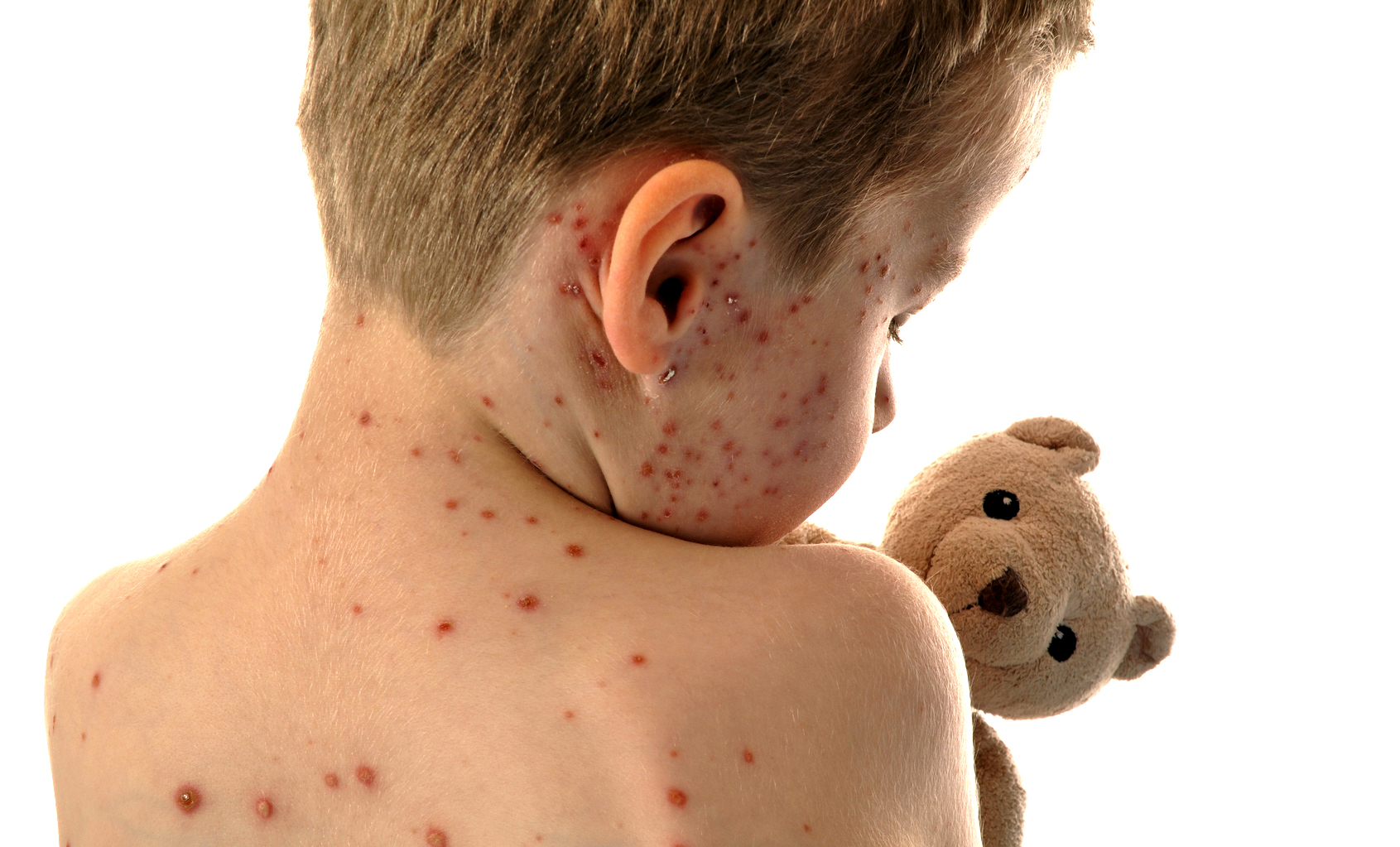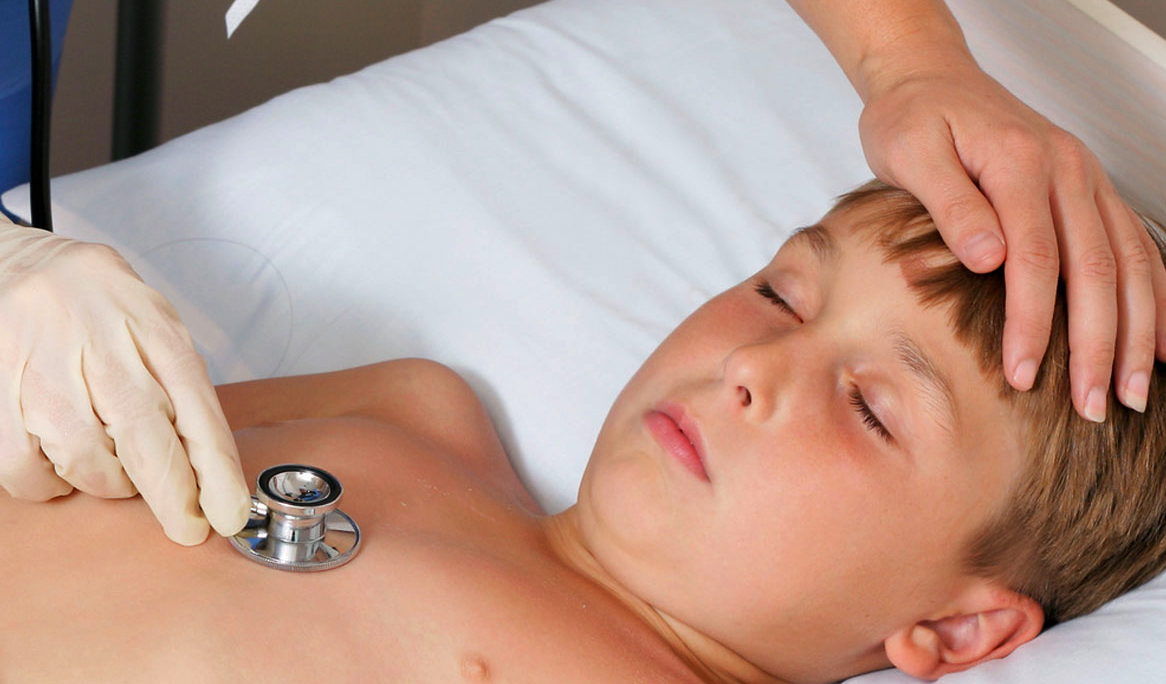[et_pb_section bb_built=”1″][et_pb_row][et_pb_column type=”4_4″][et_pb_text _builder_version=”3.13.1″]
Measles is classic skin rashes that occur in childhood.
Measles is an acute viral disease caused by a paramyxovirus of the genus Morbillivirus. This virus has the capacity to break the membrane of the cells (cell lysis) and cause their fusion, forming giant multinucleated cells; as a result, the virus passes from one cell to another.
It is manifested by cough, fever, rash, and a characteristic enanthem at the level of the oral mucosa known as “Koplik’s sign”.
Koplik spots are one of the characteristic symptoms of measles.
The measles virus is very contagious and is transmitted from one person to another by inhalation of the agent contained in droplets that are expelled when speaking, coughing or sneezing (drops of Pflügge), or by direct contact with nasopharyngeal secretions or recently contaminated items. Local replication of the virus in the respiratory tract precedes the spread of the virus through the lymphatic system, infecting the conjunctiva, the respiratory tract, the urinary system, small blood vessels, the lymphatic system and the central nervous system.
The development of effective vaccination programs has turned measles into a rare disease. Generally epidemics tend to appear in cycles of one to three years. Many cases occur in pre-school children, who have not been vaccinated and live in urban areas.
The measles vaccine is given in one-year-old babies. The measles vaccine, which the World Health Organization (WHO) defines as “safe and effective”, is administered in two doses along with the vaccines of two other viral diseases, rubella and mumps (mumps), and is known like the triple viral vaccine. It consists of the introduction of live but attenuated germs, that is, they do not produce the disease, but they allow the children’s organism to produce defenses (antibodies) against these diseases, thus preventing them from suffering in the future.
The measles vaccine should not be given to pregnant women or people with immune disorders.
If there is a severe acute illness or high fever, the MMR vaccine should not be administered.
Always take care of your health with a unique and efficient service. Visit Pharmamedic.
[/et_pb_text][/et_pb_column][/et_pb_row][/et_pb_section]





